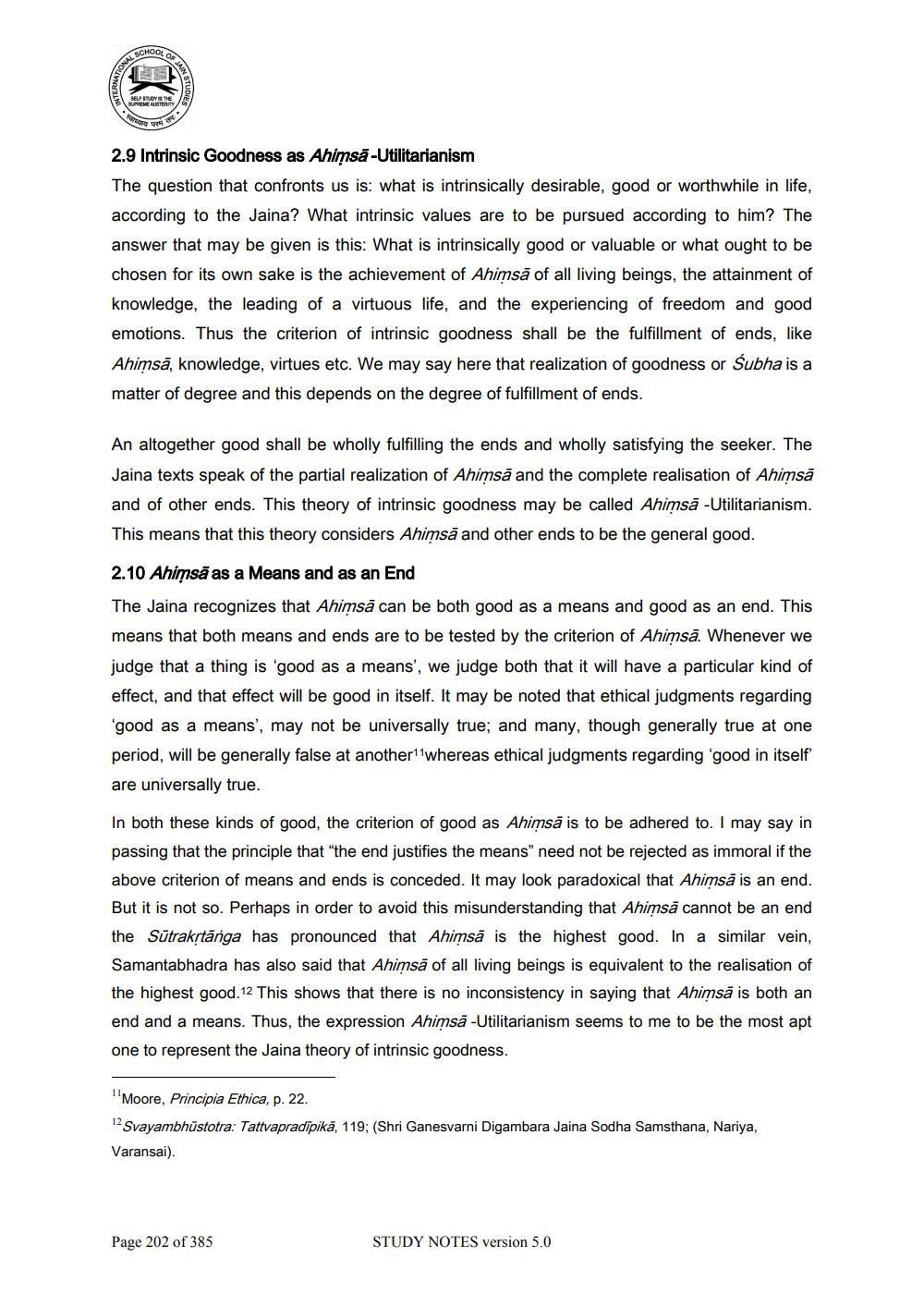________________
2.9 Intrinsic Goodness as Ahimsa-Utilitarianism The question that confronts us is: what is intrinsically desirable, good or worthwhile in life, according to the Jaina? What intrinsic values are to be pursued according to him? The answer that may be given is this: What is intrinsically good or valuable or what ought to be chosen for its own sake is the achievement of Ahimsā of all living beings, the attainment of
ledge, the leading of a virtuous life, and the experiencing of freedom and good emotions. Thus the criterion of intrinsic goodness shall be the fulfillment of ends, like Ahimsā, knowledge, virtues etc. We may say here that realization of goodness or śubha is a matter of degree and this depends on the degree of fulfillment of ends.
An altogether good shall be wholly fulfilling the ends and wholly satisfying the seeker. The Jaina texts speak of the partial realization of Ahimsā and the complete realisation of Ahimsā and of other ends. This theory of intrinsic goodness may be called Ahimsa -Utilitarianism. This means that this theory considers Ahims, and other ends to be the general good.
2.10 Ahimsā as a Means and as an End The Jaina recognizes that Ahimsā can be both good as a means and good as an end. This means that both means and ends are to be tested by the criterion of Ahimsā. Whenever we judge that a thing is good as a means', we judge both that it will have a particular kind of effect, and that effect will be good in itself. It may be noted that ethical judgments regarding 'good as a means', may not be universally true; and many, though generally true at one period, will be generally false at anotherl1whereas ethical judgments regarding 'good in itself are universally true.
In both these kinds of good, the criterion of good as Ahimsā is to be adhered to. I may say in passing that the principle that the end justifies the means" need not be rejected as immoral if the above criterion of means and ends is conceded. It may look paradoxical that Ahimsā is an end. But it is not so. Perhaps in order to avoid this misunderstanding that Ahimsā cannot be an end the Sūtrakrtānga has pronounced that Ahimsā is the highest good. In a similar vein, Samantabhadra has also said that Ahimsă of all living beings is equivalent to the realisation of the highest good. 12 This shows that there is no inconsistency in saying that Ahimsā is both an end and a means. Thus, the expression Ahimsa -Utilitarianism seems to me to be the most apt one to represent the Jaina theory of intrinsic goodness.
"Moore, Principia Ethica, p. 22. 12 Svayambhūstotra: Tattvapradipikā, 119; (Shri Ganesvarni Digambara Jaina Sodha Samsthana, Nariya, Varansai).
Page 202 of 385
STUDY NOTES version 5.0




